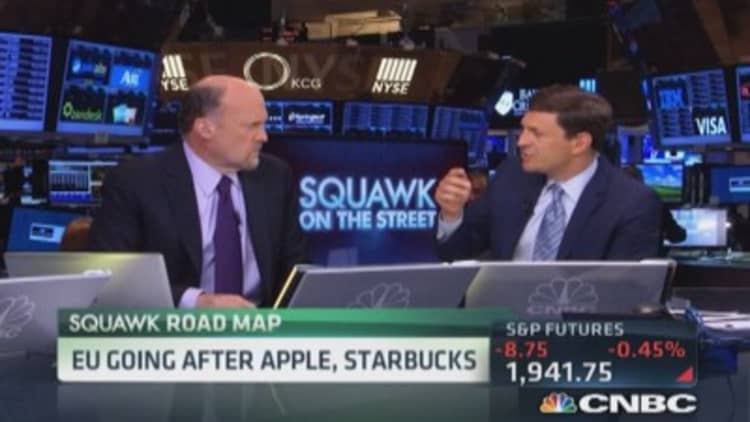Apple, Starbucks, and Italian car finance group Fiat Finance and Trade will come under the European Union (EU) spotlight with an investigation into how they avoided paying tax through using companies in Ireland, the Netherlands and Luxembourg.
If these arrangements are found to have been in breach of EU law, the companies could be forced to repay the money saved, and the use of tax techniques like the "double Irish Dutch sandwich" may come under more pressure.

What is under question is not whether the companies avoided tax, but whether they did so with more assistance from the countries involved than is allowed under EU law. There is already increasing international pressure on countries to tighten up their tax laws, with the Organisation for Economic Co-operation and Development campaigning to clamp down on avoidance.
In a statement released Wednesday, Joaquín Almunia, the European Commission's competition chief, said: "In the current context of tight public budgets, it is particularly important that large multinationals pay their fair share of taxes. Under the EU's state aid rules, national authorities cannot take measures allowing certain companies to pay less tax than they should if the tax rules of the Member State were applied in a fair and non-discriminatory way."
Ireland has become the European base for a slew of technology companies, in part because of its young, English-speaking population as well as its tax-related attractions. This has been a key part of its recovery from recession and bailout exit.
Ireland's basic corporation tax rate is 12.5 percent, one of the lowest in the region, which attracted criticism from France in particular when the country was going through a bailout from its fellow euro zone nations.
It also offers the opportunity to do what tax accountants call a "double Irish," where European sales are routed through one Irish company to another Irish company in a tax haven like the Cayman Islands or Bermuda. The first Irish company will pay royalties on intellectual property to the offshore one as part of the deal. The "Dutch sandwich" involves routing profits from an Irish company, through a Netherlands-based company, then back to another Irish company.
Apple has had its European headquarters in Ireland for more than three decades, employing more than 4,000 people in the country, and was one of the first organizations to move there. But recently more Silicon Valley firms like Facebook and Google have taken advantage of the tax regime.
The current investigation will try to establish whether Apple made a sweetheart deal with Irish authorities. A U.S. senator has already accused them of seeking "the Holy Grail of tax avoidance."
"We have received no selective treatment from Irish officials. Apple is subject to the same tax laws as scores of other international companies doing business in Ireland," an Apple spokesperson said.
"Apple pays every euro of every tax that we owe."
Pearse Doherty, finance spokesperson for opposition Irish party Sinn Fein, attacked the Irish government for its a "cozy" relationship with Apple and told CNBC the country risked "immense reputational damage" as a result of the investigation.
Taoiseach (Prime Minister) Enda Kenny's visit to California last week was overshadowed by the state's Governor Jerry Brown referring to Ireland's "creative accounting."
Fergal O'Brien, head of policy and chief economist at Irish business group Ibec, said he did not think investment in Ireland would suffer as a result of the EU investigation.
"This is an individual circumstance that doesn't have any read across to the rest of the Irish tax regime," he said.
"Our understanding of the particulars of this case is that the Commission is focussing on advance opinions provided to a company a number of years ago which address the calculation of the taxable base of profits of this company," a spokesperson for Ireland's Department of Finance said.
"Ireland is confident that there is no state aid rule breach in this case and we will defend all aspects vigorously."
Starbucks has already attracted negative attention over its tax avoidance, and famously volunteered to pay extra tax in the U.K. following protests about the zero tax paid in the country for the 2011-12 tax year. It has since said it will move its U.K. headquarters to London from the Netherlands.
"We comply with all relevant tax rules, laws, and OECD guidelines and we're studying the Commission's announcement related to the state aid investigation in the Netherlands," a Starbucks spokesperson said.
Fiat declined to comment.
—By CNBC's Catherine Boyle




